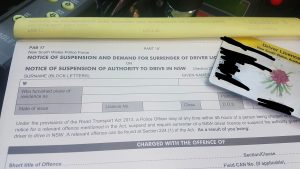Looking for Driver’s License Suspension Lawyers?
Transport NSW, previously known as the Roads and Maritime Services (RMS), is responsible for all licences in New South Wales. A licence appeal is a civil proceeding in the Local Court aimed at reviewing the decision made by Transport NSW/RMS to impose a licence suspension. This process is concerned solely with the decision to suspend the licence, not with determining liability for the offence or issuing a criminal conviction. If a licence is suspended, it is crucial to seek expert legal assistance promptly.
Types of Licence Suspensions
Once you have filed your application with the court, you will receive a date on which the application will be heard. On this date, you will present your material and/or circumstances to the court. During the hearing, the court will make an immediate determination of your grounds for appeal. In order to succeed, the court must be satisfied that there are exceptional circumstances for overturning the suspension for any Police issues Immediate Suspension. Definition: Examples: What Does Not Qualify: Exceeding the Demerit Point Limit: Speeding 30km/h or 45km/h Over the Limit: Under the Road Transport Act 2013, there is no specific test prescribed for determining licence suspension appeals. However, in practice, the court generally considers several factors: If you have an unrestricted licence and receive a suspension notice, you may be eligible to apply for a behaviour period. You need to apply before your suspension starts and meet the conditions of the good behaviour period for 12 months. You're eligible if: You are not eligible if: A court election is the process of choosing to have a traffic offence decided in a court’s criminal jurisdiction. This allows the individual to have their case heard and judged by a magistrate or judge, rather than being dealt with administratively. By taking a ticket to court it is critical that a person understands that the penalty can be increased and there will also be court costs for each offence, the court also has a general power of disqualification in traffic matters. A person can plead guilty or not guilty with or without an explanation. Outcomes: When you receive a fine, you will usually have 21 days to pay. If you don't pay, you will be sent a reminder notice, which gives you another 28 days to pay the fine. If you still don't pay the fine, you will get an overdue fine from Revenue NSW. When you get an overdue fine, additional costs of $65.00, or $25.00 if you are under 18 (as at 1 July 2024), are added to the amount you owe. You have 28 days to pay your overdue fine, if you receive it by post. If you don’t pay the overdue fine in full by the due date or apply for a payment plan, Revenue NSW can take recovery action against you. This can include directing Transport for NSW to: If Transport NSW cancels, suspends, varies, or refuses your licence for medical reasons, you will receive a letter of notice that includes: Legal Requirement to Notify: Consequences of Failing to Notify: When making the decision, the following factors are evaluated: If additional information is required from your medical specialist, you will be instructed to provide the notice to your specialist and request the necessary information be sent to Transport NSW. Steps to Apply for Removal: Decision Process: Once your medical specialist sends their advice, Transport NSW will review it and get back to you with a decision as soon as possible. All legal notices are sent by priority post. You have the right to appeal the decision to cancel, suspend, vary, or refuse your licence. How to Lodge an Appeal: Important Considerations: The Local Court can: Understanding these procedures and your rights can help you effectively manage changes to your driver licence due to medical reasons. Seeking expert legal guidance from Catron Simmons Lawyers can assist you in navigating these processes and ensuring compliance with all requirements. On the Spot Licence Suspensions (Police)
Understanding Exceptional Circumstances
Suspension by Transport NSW
Learner and Provisional Drivers
Unrestricted Drivers
Factors Considered by the Court
Good Behaviour Period - Full Licence Holder Exceeding Demerit Points
Good behaviour period
Eligibility
Breach of Good Behaviour Period Suspension
Court Election on the Traffic Offence
Suspension for Non-Payment of Fines
Medical Suspension, Cancellation, Variation and/or Refusal
Notifying the Transport NSW of Medical Conditions
Decision Considerations
Removing a Suspension, Cancellation, Variation, or Refusal
Appealing a Change to Your Licence
Local Court's Role in Appeals
Court’s Powers in Suspension Licence Appeals:
- Set aside the decision: Cancel the suspension entirely.
- Vary the decision: Modify the terms or length of the suspension as deemed appropriate.
- Dismiss the appeal: Uphold the original suspension decision made by Transport NSW/RMS/NSW Police Force.
Importance of Legal Assistance for Suspension Licence Appeal
It is critical to seek expert legal assistance for appealing licence suspensions due to the specific protocols and complexity involved in these cases.
- One Opportunity:
- You only have one shot at appealing the suspension. There are no further appeals permitted.
- Strict Time Frames:
- Appeals must be lodged within stringent deadlines to be eligible, typically 28 days. Following this, the court has no jurisdiction to hear the matter.
- You can appeal you licence suspension online through the NSW Court System or with the assistance of us.
Understanding these procedures and your rights can help you effectively manage changes to your driver licence due to medical reasons. Seeking expert legal guidance from Catron Simmons Lawyers can assist you in navigating these processes and ensuring compliance with all requirements.
